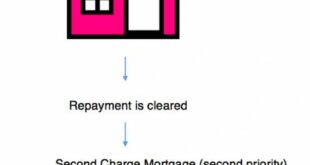Contents
Understanding Second Charge Mortgages
When it comes to managing your finances, there are times when you may need to borrow additional funds for various reasons, such as home improvements, debt consolidation, or expanding your business. One of the options available to homeowners is a second-charge mortgage. This guide will delve into the world of second-charge mortgages, explaining what they are, how they work, and when they might be the right choice for you.
The Basics of Second Charge Mortgages
A second-charge mortgage, a secured or homeowner loan, is a financial product designed for homeowners with an existing mortgage. These loans are secured against the equity in your property, which is the portion of your home that you own outright. The key features of second-charge mortgages include the following:
- Secured Loan: Unlike unsecured personal loans, second-charge mortgages are secured against your property. This reduces the risk for lenders, allowing them to offer more favorable terms.
- Equity Release: Second-charge mortgages enable homeowners to release equity from their property without mortgaging. This can be a helpful way to access capital for various purposes.
- Second Priority: Second-charge mortgages are, as the name implies, a secondary charge on your property. This means they come after your primary mortgage in terms of priority for repayment.

When Should You Consider a Second Charge Mortgage?
Before diving into a second-charge mortgage, evaluating whether it’s the right financial decision for your circumstances is essential. Here are some situations where a second charge mortgage may be worth considering:
- Home Improvements: A second-charge mortgage can provide the necessary funds to finance your project if you want to renovate your home and increase its value.
- Debt Consolidation: Managing multiple debts can be overwhelming and expensive. A second-charge mortgage can consolidate your debts into a more manageable monthly payment.
- Business Expansion: Entrepreneurs and small business owners can use a second-charge mortgage to inject capital into their business, facilitating growth and development.
- Credit History Challenges: If you have a less-than-ideal credit history, a second-charge mortgage may offer better-borrowing terms than unsecured loans, as your property secures the loan.
- Complex Income Streams: Second-charge mortgages may provide a more flexible lending solution for individuals with irregular or complex income sources.
The Application Process and Costs Mortgages
Applying for a second-charge mortgage involves several steps, and knowing the associated costs is crucial. Here’s a breakdown of the application process and typical expenses:
- Eligibility and Affordability: Lenders will assess your eligibility and affordability, considering your credit history, income, and outstanding debts.
- Valuation and Legal Fees: You’ll be required to pay for a property valuation and legal fees, which can vary depending on the lender and the property’s value.
- Interest Rates: Second-charge mortgages often have higher interest rates than primary mortgages. Rates may be fixed or variable, and it’s essential to understand the implications of each.
- Repayment Terms: The repayment terms for second-charge mortgages can vary but typically range from 3 to 25 years. More extended periods may result in lower monthly payments but higher overall interest costs.
- Early Repayment Charges: Some lenders impose early repayment charges if you decide to pay off the loan before the agreed-upon term ends.

Weighing the Pros and Cons
As with any financial decision, second-charge mortgages have advantages and disadvantages. It’s crucial to weigh these carefully before proceeding:
Pros:
- Access to Equity: You can access a portion of the equity in your home, allowing you to fund various projects and financial needs.
- Lower Interest Rates: Second-charge mortgages generally offer more competitive interest rates than unsecured loans, making them an attractive option for borrowers.
- Flexible Terms: With flexible repayment terms and loan amounts, second-charge mortgages can be tailored to your specific needs.
Cons:
- Increased Risk: Since your property secures the loan, losing your home is risky if you can’t meet the repayments.
- Costly Fees: Application fees, legal fees, and early repayment charges can add up, making second-charge mortgages expensive compared to other borrowing options.
- Impact on Primary Mortgage: Taking out a second charge mortgage will affect your primary mortgage, potentially leading to higher monthly payments.
In conclusion, a second-charge mortgage can be a valuable financial tool when used thoughtfully and responsibly. By understanding the basics, assessing your financial needs, and carefully considering the pros and cons, you can make an informed decision that aligns with your goals and circumstances. Consulting with a financial advisor or mortgage expert is a wise step before proceeding with a second-charge mortgage.

Unveiling the Benefits and Considerations of Second Charge Mortgages
Understanding Second-Charge Mortgages In mortgage financing, first-charge mortgages tend to take center stage. They are the primary loans used to purchase or refinance a home. However, another player in the field is not as widely discussed but can be a valuable financial tool: second-charge mortgages.
Second Charge Mortgages Explained: A second charge mortgage, also known as a secured or second mortgage, is a financial product allowing homeowners to use the equity in their property as collateral to secure additional borrowing. This article will delve into the intricacies of second-charge mortgages, discussing how they work, their benefits, and when they might be a suitable option.
The Benefits of Second-Charge Mortgages Second-charge mortgages offer several advantages that make them a viable choice for homeowners in certain situations. Let’s explore some of the key benefits:
- Access to Additional Funds: One of the primary advantages of a second-charge mortgage is that it allows homeowners to access additional funds without having to remortgage their property. This can be particularly useful for those who want to finance home improvements, debt consolidation, or other significant expenses.
- Lower Interest Rates: Second-charge mortgages often have lower interest rates than unsecured loans or credit cards. This can result in more affordable monthly repayments, making it an attractive option for borrowers seeking cost-effective financing.
- Retaining Your Existing Mortgage: When you take out a second-charge mortgage, you don’t need to disturb your existing first-charge mortgage. You can maintain your current mortgage terms and conditions while accessing the necessary capital.
Considerations Before Applying for a Second Charge Mortgage While second-charge mortgages offer several benefits, it’s crucial to carefully consider certain factors before applying for one. Here are some key considerations:
- Equity in Your Property: Your equity will determine how much you can borrow with a second-charge mortgage. Lenders typically consider your home’s current value and the remaining balance on your first mortgage.
- Repayment Ability: It’s essential to assess your ability to meet the monthly repayments on your first and second mortgages. Failure to pay a second-charge mortgage could put your property at risk.
- Exit Strategies: You should clearly plan how you intend to repay the second charge mortgage. Whether through property sale, remortgaging, or other means, having an exit strategy is crucial to avoid financial complications.
How to Apply for a Second Charge Mortgage Applying for a second charge mortgage is a structured process. Here are the steps you should follow:
- Assess Your Needs: Determine the purpose of the second charge mortgage and how much additional borrowing you require. This will help you identify suitable lenders and products.
- Seek Professional Advice: Consult a mortgage advisor or broker specializing in second-charge mortgages. They can provide expert guidance and help you find the most appropriate deals.
- Compare Lenders and Offers Research and compare lenders and their second-charge mortgage products. Pay close attention to interest rates, terms, and fees.
- Complete the Application: Once you’ve chosen a lender, complete the application and provide all necessary documentation, including proof of income and property details.
- Wait for Approval: The lender will review your application and conduct a property valuation. You’ll receive a formal offer if approved, and the funds will be disbursed accordingly.
When Is a Second Charge Mortgage the Right Choice? A second-charge mortgage can be a valuable financial tool, but it’s not the right solution for everyone. Here are some scenarios where it might be a suitable choice:
- Home Improvement Projects: If you want to renovate your home, a second-charge mortgage can provide the funds needed to complete the project without affecting your first mortgage.
- Debt Consolidation: For individuals with multiple high-interest debts, using a second-charge mortgage to consolidate debts into a single, lower-interest loan can lead to significant savings.
- Short-Term Financing Needs: A second charge mortgage can offer a cost-effective solution if you require funds for a short-term goal, such as education expenses or a special event.
In conclusion, second-charge mortgages are a financial tool that can offer homeowners access to additional funds secured against their property. However, it’s essential to carefully weigh the benefits and considerations, assess your unique financial situation, and seek professional guidance when considering a second-charge mortgage. Making an informed decision will help you make the most of this financing option while safeguarding your property and financial stability.
 Ahammed World Afffaires
Ahammed World Afffaires


